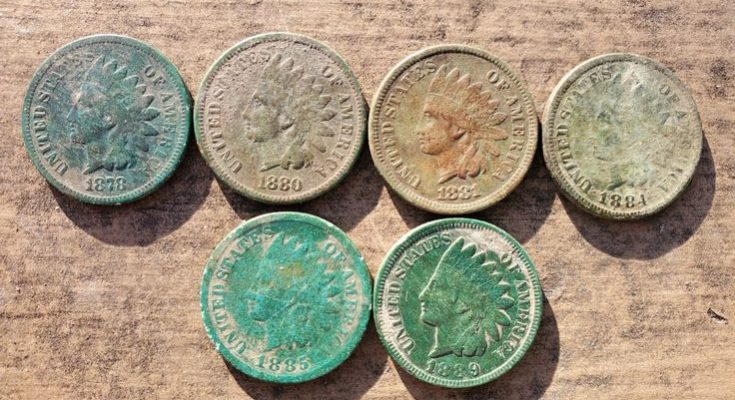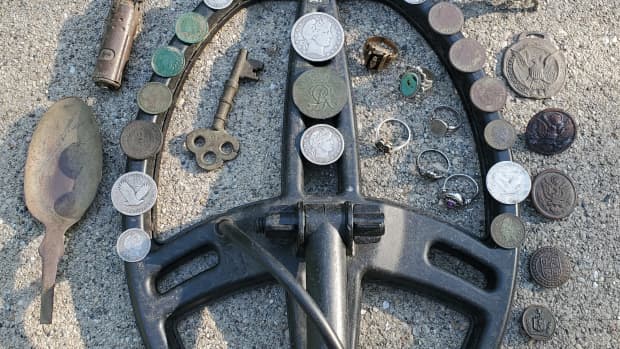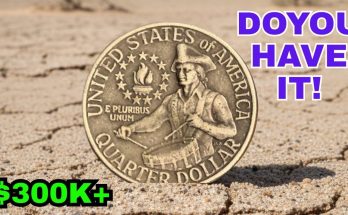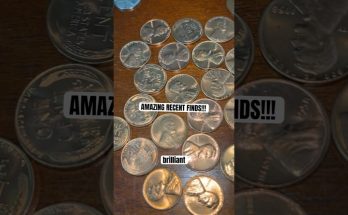Where Can You Go Metal Detecting Without Permission?
One of the best places to go metal detecting for old coins and rings is on private property, but for those who don’t want to deal with getting permission from the property owner, there are public places where you can often take your metal detector without having to get permission in advance. Here are six good options.
- Local Public Parks
- School Grounds
- Public Beaches and Swimming Holes
- Property Owned by Friends and Family
- Curb Strips
- Fairgrounds
Check Your Local Ordinances First
I should clarify that while you might not have to get permission to treasure hunt the public places in this article, you should still confirm in advance that your city and county allow metal detecting since local ordinances and laws vary in the United States.
In my city, there are no local ordinances against metal detecting these public places, but that might not be the case where you live.
1. Local Public Parks
Generally, most neighborhood parks don’t require permission to metal detect them, but some cities don’t allow it. In other cities, a permit might be required, but that’s usually easy to obtain at your local parks and recreation office for a couple of bucks. Protected land owned and managed by the state and federal government is usually a no-no, and you can face serious fines if you dig holes there.
While most of my best metal detecting finds have come from private property permissions at old homes, I have found rare copper and silver coins, silver rings, and antique tokens, all from older neighborhood parks dating back to the 1800s.
If you’re willing to make the drive, old parks in rural areas are less likely to be hunted out than high-traffic parks everyone’s metal detected a million times. Google Maps is a good way to find hidden neighborhood parks in small towns. With some patience, though, you can still find valuable jewelry and older stuff in high-traffic parks that have been metal detected for many years.
2. School Grounds
Like public parks, old school grounds are good places to make newer and older finds if you’re fortunate enough to metal detect one with dirt that hasn’t been pushed around and landscaped. The best time to metal detect a school is on a weekend when the students are gone—or, even better, during the summer when school’s out.
In most cases, you don’t have to get permission to metal detect a public school, but historical school houses are a different story. Many of those historic school buildings are landmarks protected by the federal government or historical society, or they’re located on private property.
Wood chip playgrounds at schools are also good places to find lost jewelry. Avoid metal detecting and digging in well-maintained sports fields. The weedier the grass, the better. Try to find a grassy area by some old trees away from the school.
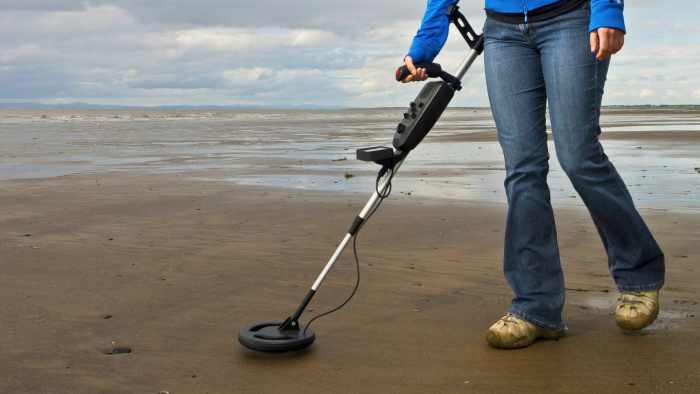
Public beaches are great places to metal detect, especially if you go early in the morning before they get crowded.
3. Public Beaches and Swimming Holes
Public beaches and lakes with old swimming holes are awesome places to metal detect with a waterproof metal detector. The best time to go is early in the morning before it gets crowded.
Permission typically isn’t necessary to metal detect beaches and lakes that are open to the public, but waterways that cross into government land are often protected and off-limits.
Underwater metal detecting high-traffic beaches and swimming holes can produce valuable silver and gold rings, lost cameras, and coins. With water detecting, you need waterproof gear and a good sand scoop. With research, you can find old swimming holes in local creeks and rivers. A long time ago, people swam a lot in natural waterways before public pools were created.
4. Property Owned by Friends and Family
Do you have any close friends or family members who own property of historical significance? You probably wouldn’t have to get permission, and you’d have a private place to go metal detecting. Homes from the 1800s and earlier are perfect places to find old coins.
Privately owned property has always produced my best finds while metal detecting. Most of the rare coins that I’ve found came from the yards of older homes from the 1800s. If you know someone with older property, I would definitely metal detect that first before going to a public place.
5. Curb Strips
Curb strip grass, the grass between the street and the sidewalk, is usually city-owned and doesn’t require permission for metal detecting, but not always. In my city, I can legally metal detect the curb strips, but in another town down the road, I can’t.
Call your police department and double-check that it’s legal in your city before you start. I can tell you from experience that you can find some cool stuff metal detecting curb strips, but be aware that you will occasionally encounter angry homeowners.
I highly recommend not digging in well-maintained curb strip grass. Even though the city owns the grass by the curb, the homeowner is required to maintain it at their expense. Only dig in curb strip grass that is weedy and neglected. The best time to go is during the week after everyone goes to work in the morning.
6. Fairgrounds
Most fairgrounds are public, and you can usually metal detect them, but don’t go during an active fair. Older fairgrounds from the 1800s have been used by thousands of people for a long time. You can find tons of coins, both old and modern, and even jewelry.
The only problem with metal detecting fairgrounds is the trash—there is a lot of it. A good metal detector that will separate the trash from the treasure is a must. I own and use a Garrett AT Pro.
Another tip is to look for a former fairground in your area. This could be an abandoned field, forest, or a park that was originally a fairground. In my area, there is a huge park that was the original fairground where thousands of people gathered in the 1800s. There was even a horse track there. Most people don’t want to do historical research, but it’s key to finding amazing places to metal detect.
This content is accurate and true to the best of the author’s knowledge and is not meant to substitute for formal and individualized advice from a qualified professional.
